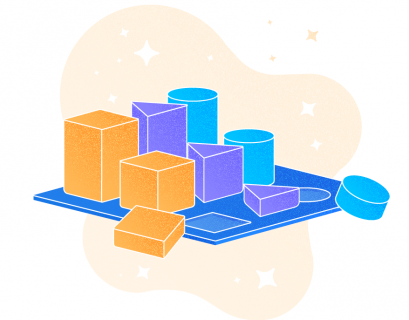
Computer programming language is a set of detailed instructions for computers or machines for performing specific actions. Through a programming language, we can control the behavior and output of a computer via accurate algorithms. A programming language is also called a computer language or programming system. The computer performs with various programming languages, such as SQL, Java, C++, Python, etc.. These languages allow computers and machines processing the large and complex data more effectively and quickly. That is the reason we find them valuable to organizations, particularly in the creation of system database management services.
What is Structured Query Language?
SQL stands for “Structured Query Language”. Raymond Boyce and Donald Chamberlin developed SQL at IBM in the early 1970s. It was created for getting access and modifying data held in databases. Initially, it was called SEQUEL (Structured English Query Language) but later needed to change its name because another business claimed that name as a trademark. Afterwhile, SQL has turned into an official standard for the ANSI (American National Standards Institute) and ISO (International Organization for Standardization).
SQL is an exceptional reason programming language that is utilized to interface with databases. It works by understanding and analyzing databases that include data fields in their tables. For example, we can take a large organization where a lot of data have to be stored and managed. The organization has to collect and store all the information from the various departments. All the gathered information is organized and stored in a database, but it has to be valuable and accessible — that’s the place where SQL comes in. In such a situation, SQL is a platform that associates with front-end and back-end databases (computers and databases held on servers).
What is Database Concept?
Essentially, a database is an organized stack of information. The database includes numerous tables and a table stores rows of data in an organized format characterized by the table’s columns (also called fields). The greater part of this leads to the fundamental progression of the database. So SQL queries control the rows of information that is stored in tables, and the tables, in turn, are contained within a database.
SQL includes numerous important commands that allow you interacting with this data.
If these commands are utilized effectively, they can be very powerful and help clients to manage and modify vast volumes of data effortlessly. Here are some important commands: SELECT, DELETE, CREATE DATABASE, INSERT INTO, ALTER DATABASE, CREATE TABLE, and CREATE INDEX.
SQL is the most mainstream language that is used to access databases because it can work with any database. The databases, with which you interface, are programs that enable clients to store and manage information in a logical manner. Usually, databases are classified into two categories that are based on the using of SQL standards. They are known as SQL and NoSQL databases. There are numerous varieties of SQL databases with little difference. There are numerous varieties of SQL databases with little variation. To make things more convoluted, many of these databases have names that incorporate the term SQL, for example, MySQL and PostgreSQL.
Diverse SQL databases include a similar core of SQL commands that can vary in different regions. Usually, one database type is preferable for specific task over others, and you frequently hire developers who are specialized in a particular database.
Advantages of Learning SQL Structured Query Language
The advantages of learning SQL are expanding and significant. SQL had a colossal increment in utilization during the most recent couple of years. Now, this tendency proceeds because companies gather more and more information that has to be stored and comprehended afterward.
1. Universal Language
SQL is one of the techniques that seeps over into other numerous disciplines. When you work with SQL, you’re using the computer’s language. This stimulates you to progress into coding with other different languages, for example, C++, Javascript, Python, and others. All these languages are invaluable and still in demand.
Everything you need for prevailing with a programming language is a dream about a field you want to work in. During the time of learning SQL, you can enhance your abilities to specialize as a programmer, developer, manager, and more. It sounds cheesy; however, there are truly no boundaries of what you can do with SQL.
2. Open-Source – Easy to learn and use
SQL is an open-source programming language, so it has a large community of developers. Many topics that relate to SQL and MySQL are posted on StackOverflow consistently. SQL is comparatively easier to learn than other programming languages, for example, C++. Also, a considerable number of the prevalent databases that use SQL (MySQL, MariaDB, and Postgres) are open-source.
3. Manage Million Rows of Data
Traditional spreadsheets can be used to manage small-to-medium-sized sets of information, so we will require an alternate solution when managing such huge records. Gratefully, this is a field, in which SQL sparkles: regardless of whether it’s 1,000 records or 100 million, SQL is completely equipped to handle data pools of virtually all sizes.
Did your spreadsheet crash since you had thousands of columns of information? Relational databases are intended to store millions of rows of data. SQL permits you performing activities on this large measure of data without worrying about crashing. Microsoft Excel is an incredible tool, but it was not developed to perform tasks on millions of rows at once. Relational databases are intended for such huge tasks, and SQL is the language that enables you to finish them.
4. Technology Evolution
Database technologies like MySQL, Microsoft SQL, and PostgreSQL Server reinforce huge associations, small companies, banks, hospitals, colleges. In fact, every PC or individual with access to some kind of mechanical device eventually touches SQL. It is even on your smartphone since Android and iOS both use SQL.
5. High in Demand
There aren’t many individuals in the present workforce who have a working experience in SQL. Many businesses perceive the value of such a skill in the current market. However, it’s a simple sell to make.
Companies are currently searching out those individuals who are skilled in SQL. It’s one thing to have the capacity to gain a high salary. However, employers know the worth that somebody, who is skilled in SQL, leads to their association and need to hire these people. Also, in case you want to change a job, learning SQL makes you a favorably sought after prospect.

You won’t have problems while finding a job as a SQL programmer. There are much more SQL programming employments than some other kind of programming languages, including C+, C++, Java, JavaScript, Python, and PHP.
Conclusion
SQL is magnificently essential and valuable skill businesses desire. Almost every business has become digitized. Digital means data – data rises to databases, and, to be responsible to those databases, you require SQL. Read any business journal and you will see something about analytics or business intelligence (BI). As companies strive to accomplish more with their information, they will require more people with the skills to access and analyze that data. SQL is the key skill that empowers you to do that.








nice article.